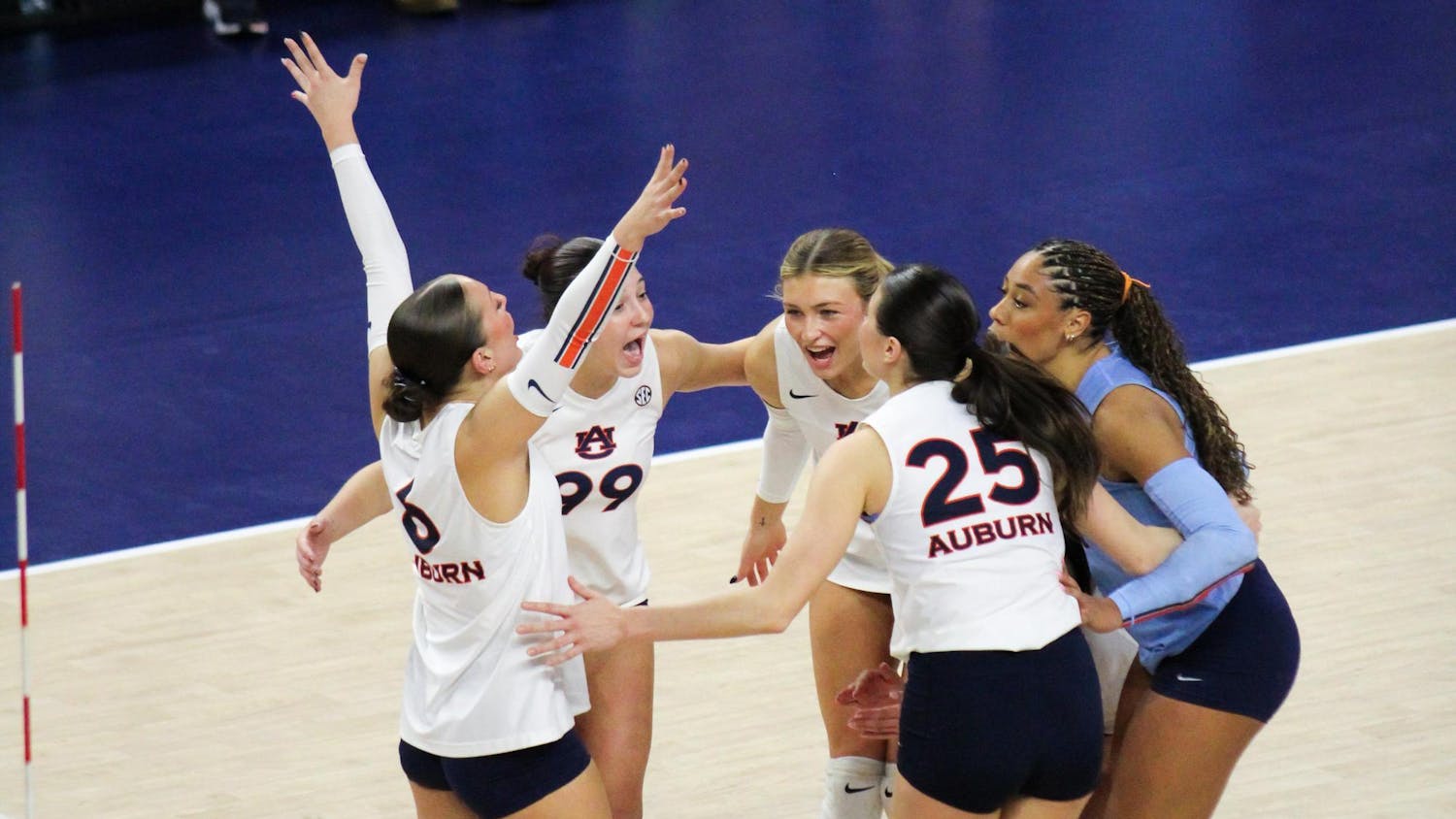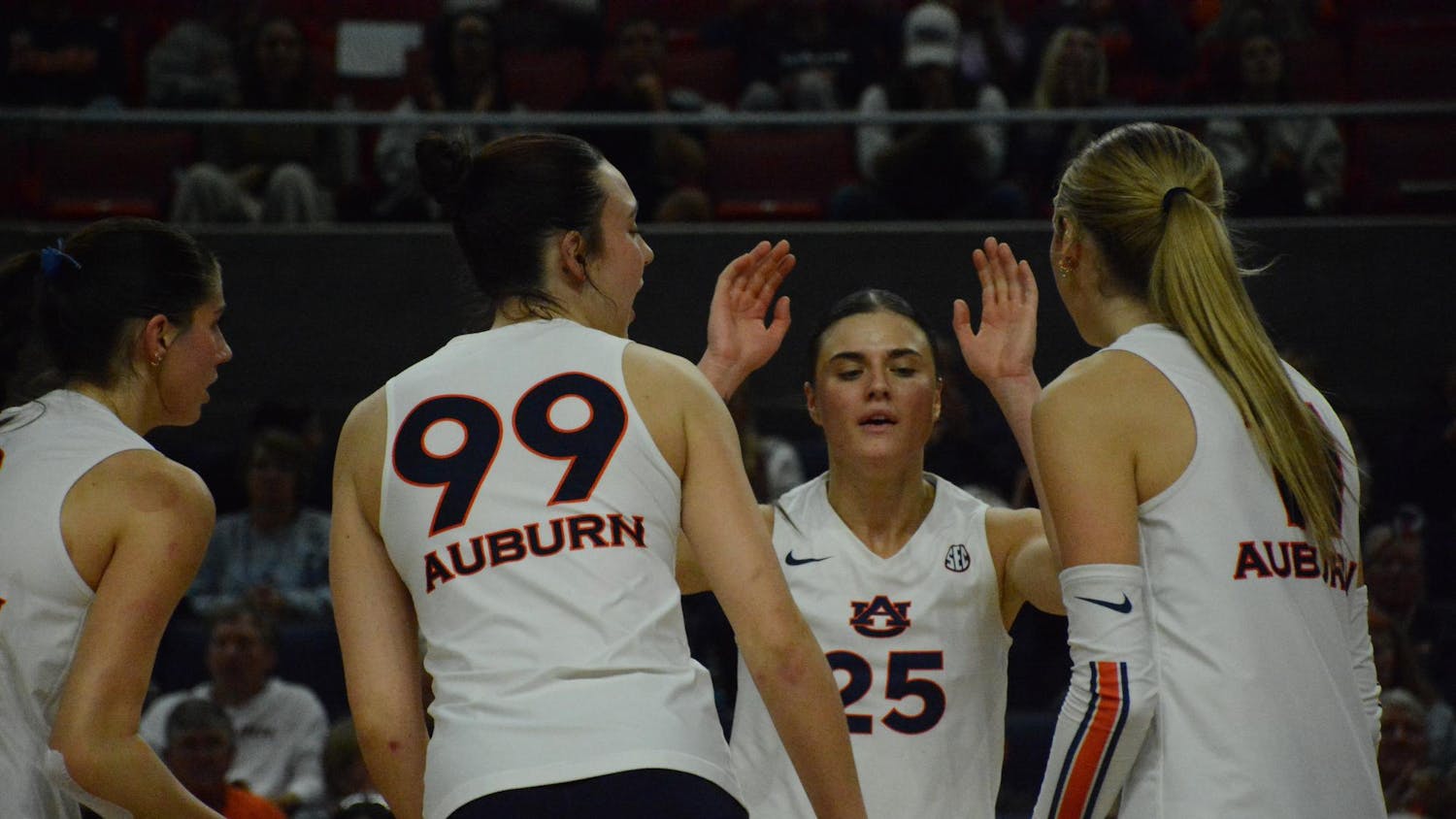Kyes Stevens’ life took a turn when she was given the opportunity to teach poetry at a prison in 2001.
Stevens, the founder of the Alabama Prison Arts + Education Project, graduated from Auburn with a degree in English before moving on to earning her MFA in poetry at Sarah Lawrence College.
Growing up in a small town in Alabama, her childhood was surrounded by books, engrossing herself in every opportunity to learn.
“Even though I came from a firmly middle-class family in Alabama, I came from a privileged family because there were always books around,” Stevens said.
Her family has been a part of the Auburn community for years.
“I do feel like the people who come before you make a path and my family did that for me,” she said. “My grandmother was a graduate here in the 30s, and she was one of the first women at Auburn to receive her pilot’s license.”
She grew up in a family where she was surrounded by women doing remarkable things she said. The struggle was existing in a society that had yet to catch up.
As part of the 125 years at Auburn women celebration, Stevens said it makes her feel very proud of her family and the opportunities that have been created here.
She fell in love with poetry at a young age but didn’t pick it back up again until high school.
“My mother’s mother worked at Auburn in the home ec department so when I would go visit her, she had her dad’s poetry books,” she said. “So, as a little bitty kid, I’d read them, didn’t understand them, but I read them. It wasn’t until high school I started writing poetry, but it was very typical, very ‘woe is me’ poetry.”
Her work progressed from there, but she said it wasn’t until graduate school when she took her first poetry class and really fell in love.
“This is not what I thought I was going to do. The idea of moving back to Waverly, Alabama, with an MA in women’s history and an MFA in poetry and no jobs was my reality, so this opportunity literally fell in my lap,” she said.
She was offered a job to teach poetry at Talladega Federal Prison, and it was there she was inspired to create the Alabama Prison Arts + Education Project.
“What I saw in that prison were people that loved poetry for the same reasons that I love poetry, but they never had access,” Stevens said. “The access is part of the problem.”
Through art and educational opportunities, Stevens hopes it’ll spark a change in conversation the way the incarcerated are viewed. It is important to recognize the privileges others may or may not have.
“One of the things with privilege – you’re not even looking at the people who are incarcerated, people are so quick to say ‘inmate,’” she said. “Language is so important regarding how you present and do anything.”
“When you look at the state of Alabama there are predominately white people who grow up in wealthy areas where there is access to all kinds of things. Sports, clubs, you can learn to draw, be in band. And then there are all of these schools in the same state that do not have access, so some even struggle to get textbooks or computers.”
The person that has the privilege and gets exposed to something may not be cognizant of how it may be influencing their lives, she said.
“It is an opportunity to be exposed to something, to know that it even exists,” Stevens said. “So, if you don’t have that exposure then you can’t really include in how a young person thinks about what they can do with the rest of their life. They may think they don’t have the opportunities to be a graphic designer or an engineer.”
The program is now actively working in 10 prisons. It not only develops an education for its students but influences their lives inside and outside of prison.
“Education can help their situation today, when they get out, help their children’s lives and the community. So why not create space for these programs?” she said. “It is the public perception that someone has done something bad, but the greatest disservice to people who are victims of crimes is to release them from prison with no meaningful opportunities to do something different with their lives.”
If you want to savor society and more make more victims, education is one of the number one indicators, she said.
The project just launched a bachelor of science program along with their art opportunities.
“We have an interdisciplinary studies program that is located at one facility where students all over the state apply, are vetted then accepted,” Stevens said. “They are taking the same classes as you do (university students).”
Stevens said as she hopes to see the project grow she will also see growing acceptance from society.
“There are a lot of conversations about if you give people access, equality is not necessarily equity,” she said. “Building equity is recognizing everyone’s needs and building a foundation for those needs.
“We are a society that likes to put up fences. We like to remove people because we don’t like to be reminded that every human being has the capacity for acts of extraordinary kindness and goodness and if given a chance people have the capacity to do something other.”
To change the conversation she said it’ll have to start with education but also being realistic and forcing yourself to be around people that are not like you.
In every group there is an “othered.” Every group that is pushed to the periphery for whatever reason – they’re gay, they’re an immigrant, they’re poor.
“Lots of people don’t want to get out of their box and see those people as people,” she said. “If we continue we make all of these generalizations and then there are all these misunderstandings when, in fact, human beings have most things in common.”
She said people want to succeed. They want happiness in their life, they want a family and to take care of that family.
Steven’s philosophy is to just try. The students who were hesitant and felt they couldn’t write were given the advice just to attempt it.
“People live inside of a prison, a place that tells them every day about who and what they are,” Stevens said. “To step out onto a branch and try to learn to do something different is a risk, and it is a very vulnerable thing to do in such a tough culture.”
Poetry can simply be whatever they want it to be. No matter what the subject she said, education is the key to growth.
“When you are in a classroom and are exposed to different ideas and different cultures you grow as a human being and that influences you, which will influence your family and then the community and then every aspect of your life,” Stevens said.
Do you like this story? The Plainsman doesn't accept money from tuition or student fees, and we don't charge a subscription fee. But you can donate to support The Plainsman.




